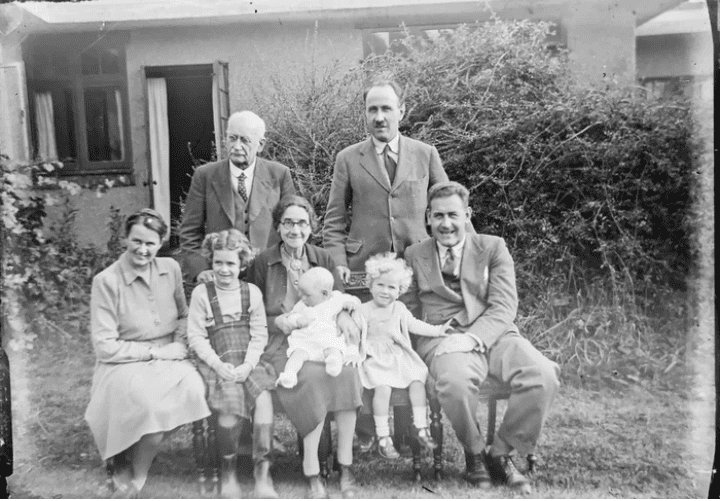As the saying goes, “you can’t take it with you.” So where do you want your wealth to go when you’re gone? That’s the question!
What is Generational Wealth Transfer?
Generational Wealth Transfer on Economic Growth: Threat or Opportunity?
Problems of Generational Wealth Transfer
Ways to Secure Generational Wealth Transfer
Introduction
Discussion on generational wealth transfer can be difficult and awkward for many families. However, it is important that benefactors who are passing down their wealth to others begin the process around the inheritance they are leaving behind. These processes will help set the expectations for the transfer as well as create objectives for the outlook of the inheritance.
Plans are always mapped and carried out when it comes to issue that has to with generational wealth transfer, why? The benefactor need to have specific plans of how their wealth will be used or even the values they want their inheritor to carry out when using inheritance funds. This will help the inheritor become more confident about the wealth transfer they are receiving and how to integrate it into their lives will be easier to execute.
Conversation is the first step to a seamless generational wealth transfer in any family.
What is Generational Wealth Transfer?

Generational wealth transfer is referred to those assets transferred down from one generation to another. When one leave behind a significant number of inheritance for his/her descendants, that will constitute generational wealth. These assets in question include the following: real estate, stock market, investments, a business, or anything else that has monetary value.
Research has clearly shown that people who inherited generational wealth often have a significant financial advantage over those who do not have any inherited wealth. They will likely have the capacity to avoid student loans as well as other kinds of debt.
The transfer of these generational wealth or assets to beneficiaries upon the death of the owner is done via financial planning methods. And these methods often include the following wills, estate planning, life insurance, or trusts in a tax efficient way.
Considering generational wealth transfer, most Americans want to know that no matter the size of their estate, their assets will move to the people they choose.
How can one build a generational wealth?
You need to acquire assets or save money to be able to pass down the money and assets to children or other younger relatives. Unless you had wealth passed down to you, accumulating extra assets can be slow. More insight read this article.
Fortunately, it’s completely possible when you are strategic and very discipline with your finances. These four strategies are the accessible ways toward building generational wealth for the next generation to inherit;
Create a business to pass down
A business name with “& Sons” know there is a reason for it. People love this idea of building a business in order to pass it down to the next generation, and their children.
However, while most family businesses state they will pass the company to the next generation, only a few end up doing it, and it takes diligence. Businesses can be very profitable long-term, but it’s crucial that whoever takes over the business has interest in the industry and knows how to operate a business. Read more on black wealth.
Invest in real estate
Real estate is a kind of investment that is very tangible which will generate passive income for the beneficiaries. When an individual inherits an investment property, he/she receives rent. Rental income also has various tax benefits, like you having the ability to claim depreciation as tax deduction. With a lot of other expenses that’s related to maintain the property.
When prices vary irregularly, homes have consistently increased in value over long periods of time. Meaning, when the next generation does not wish to continue owning the said property in question. They will be able to sell it far more than the purchasing price.

Save money strategically
Wealth does not only come from making money, but from the ability to save it as well. As you receive income from stocks and other investments. Put aside as much as you can in a place where it will continue to grow. Ideally in tax-advantaged accounts first.
Invest in stocks
A stock is an investment. When you purchase a company’s stock, you’re purchasing a small piece of that company, called a share. Investors are known for buying stocks in companies they think will appreciate in value. When that happens, the company’s stock will increase in value as well. The stock will then be sold for a better profit. Read more on stock, here.
What is Economic Growth?
Economic growth refers to the kind of growth that will increase in an inflation-adjusted market value of goods and services produce within a certain period of time in a country. Often, but not necessarily, increase gains in production correlating with increased average marginal productivity within that time. This will bring about an increase in income, inspiring customers to open up their wallets and purchase more and more. Meaning an increase in the standard of living in the country.
It creates more profit for businesses. As a result, stock prices rise and gives companies capital to invest and hire more employees. As more jobs are created, incomes rise. Consumers will have more money to purchase additional products and services. Transactions will drive higher economic growth. For this reason, all countries need to have a more positive economic growth. Access more insight on economic growth.
Generational Wealth Transfer on Economic Growth: Threat or Opportunity?
When wealth are transferred from one generation to another, inheritors might not necessarily want the same investments as their benefactors. In order to maintain continuity with these families. Wealth management firms will need to strengthen their relationships with the inheritors. To be able to ensure that any investment, they want to do is good for them or not.
Are these wealth management firms prepared for generational wealth transfer and its impact on economic growth? And should they even view it as an opportunity or a threat?
Baby boomers generation
The baby boomer generation are those set of people born between 1946 to 1964.
This generation holds the overwhelming majority of wealth in the United States. But the exact estimates vary widely based on research. Some sources estimates that the boomers has roughly $15 trillion in assets. Others has a different opinion all together, putting the number more than $59 trillion or around $68 trillion. Actually this means, they have really done very well for themselves. For the very first time in U.S. history, a generation has lived more in prosperity more than its children.
A vast majority of U.S. baby boomers are unprepared for retirement. Enabling them to work even longer, this could benefit both citizens and the economy. The policymakers and business leaders are expected to take action, by increasing the age of retirement by adding two years more. The share of unprepared boomer households could be halved. The additional workers would boost the real GDP growth.

Female inheritor
It is essential to cater for the different expectations of the younger generations, because of the need to address the specific needs of women. Traditionally, wealth management clients have always tended to be majority of male. Additionally both male and female investors should characterise the wealth management industry which is outrageously designed for male. It’s not meant to be so!
In terms of generational wealth transfer, older woman, spouses to high networth men are often the first to inherit family wealth. This goes to show that the female investor is now a key management person for firms. This will give the firms more chance to take a more segmented approach to their clients base.
Power of inheritance planning
Generational wealth transfer is a very critical aspect of wealth management because many firms do acknowledge the importance of one planning his wealth among his children. They also offer inheritance related services, and to build ties with the next generation is very critical to their client retention.
The wealth management firm need to engage and retain future generations as clients because of the need to ensure that they understand their current clients’ families. This helps to build relationships with the younger family members in order to know and understand their needs and aspirations.
Where next
The global market is changing, so are the ways in which wealth is transferred from generation to generation. Wealth management firms and commercial banks need to be able to identify and engage with these future generations. This helps them to develop products that are relevant to them.
Due to the influence of technology, digital is an essential part of this strategy. But it’s not to say the business model is going to become completely impersonal. No! The need of expert’s advice remains important. Research has it that, Millennials will tend to be honest about their lack of knowledge on investment. And are almost three times more likely than Baby Boomers who will seek advice from a financial planner in any of the investment company. Digital services should also facilitate access to advice.
Problems of Generational Wealth Transfer
When a boy or girl needs money, he/she will always find himself at the mercy of dad and mom. However this is not the only source of financial assistance. Basically grandparents, are increasingly playing a massive role in the transfer of generational wealth between generations.
So why then is generational wealth transfers a problem to many of us?
Generational difference
Kay Ingram, director of public policy at LEBC Group, expects generational wealth transfer to become more challenging as generation X – typically classed as those born between 1965 and 1980 – age.
Ingram continued by saying that : “In the future, retirement will likely be more challenging and probably difficult for generation X ages. They are the squeezed middle who have not benefited to the same extent as their parents from defined benefit pensions.”
The key notes here;
- Planning generational wealth transfer can pose problems
- There is unlikely to be help from the bank of mum and dad in the future
There is a prediction that the bank of dad and mom will soon run out of money. So baby boomers will need to think carefully and critically about how and when they should pass their assets on to the next generation.
Using tax structures
Several industry experts often stress that generational planning is crucial to ensure that wealth passes in a tax efficient way. Professional advice is good to be sought early, in order to be able to enjoy tax allowances that are more available to younger generations now.
Sarah Phillips partner at Irwin Mitchell, says: when passing wealth from baby boomers to younger clients. There are a few things to consider:
• Does the wealth being gifted need protecting in the hands of the younger recipient. Except n the event of divorce, financial difficulties or third-party influences)?
• When clients themselves love some of their children more than others during their lifetime. But have a good wish to ultimately treat them all equal with love. Will their wills be structured in a way that it will achieve this?
• Transfer of generational wealth will give many tax planning opportunities for both parties. But there are a lot of traps for the unwary or ill advised. Read this article for more insight

How professional advisors can help the next generational
Currently, the majority of financial planners focus their business around serving the most affluent and rich segment of the US population, namely the Baby Boomers. The accumulate a hefty 55% of the entire household wealth in the United States. It is quite logical and understandable to direct all your efforts to where your money is. However, it is professionally unwise to neglect the clients from the next generation.
They advise the inheritors, to build a relationship with them. When the relationship is built, they will be able to understand what drives the next generation and what actually are their priorities. Most commentators stress the importance of familiarising children with financial advice from an early age.
Family members are always encouraged to frequently have roundtable discussions with their advisers. The roundtable style of meeting them to identify their own preferences. This allows the different generations to gain knowledge and understanding of the family’s position.
Ways to Secure Generational Wealth Transfer
Only few of these generational wealth transfer plan end up being successful. Why do so many fail? Trust and communication issues are the primary causes, both among family members and between family members and their advisor.
To improve the success rate of generational wealth transfers, advisors must realize it’s not just about protecting the actual assets, but about preparing the heirs receiving the assets.
Uncover each other person’s concerns
Begin by having individual meetings with grandparents, parents and children to uncover their unique concerns. These conversations will help you understand every generation’s viewpoint. For example, a traditionalist might be more worried about how to preserve family values. Baby Boomers might be much more concerned about how they will be able to maintain their independence as they age.
Taking time to make connections and learn about each person’s concerns will help your clients and will strengthen your relationship with each heir.
Explore individuals’ goals
Your duty as an advisor goes well beyond just addressing concerns but also will require examining every one’s goals and objectives in life. Without you being able to understand these different needs, just understand that a successful generational wealth transfer cannot happen.
Perhaps, the grandparents would love to share their own life lessons, stories and values with their own children and grandchildren. Mr/Mrs X may have a dream of sending their kids to college debt-free. Another might be busy exploring their options for a trip abroad, donating to a philanthropic service or even saving to buy a home. Uncovering the goals of each generation will help you focus on both individual and shared priorities, so every family member feels valued and invested in the plan at large. After all, helping their clients to reach their personal goals is arguably one of the best parts of you being a financial advisor.
Be their generational translator
The question is how do you carefully bring both the concerns and goals of each person to the table? There are two things to keep in mind here: the structure of the meeting itself and the perspective of each generation. When considering the structure of the meeting, keep in mind that each generation will most likely have different expectations. It is very possible for you to address all these generational desires at the same meeting with the family members. The family meeting to include siblings and parents discuss assets, liabilities and expenses. This can help the entire family create the best financial scenario for everyone.
Generational perspectives may, however, provide some angst to the conversation. The need to moderate as communication can break down along generation lines, especially when it comes to priorities and perspectives. Do some feel like a valued part of the conversation and not put out to pasture? Are your Boomer clients worried their Millennial heirs don’t understand what’s at stake?
Conclusion
Trust me, generational wealth transfer is always b big challenge for most families. If not handled well might cause a serious issue that can even lead to family disunity. The best thing is for the benefactor to explain to the children what they need to know about the wealth. This will certainly lead them to know how and when will the generational wealth transfer take place. And who will have this or that in the wealth to be transferred and prepare him/herself by showing interest in the business.
